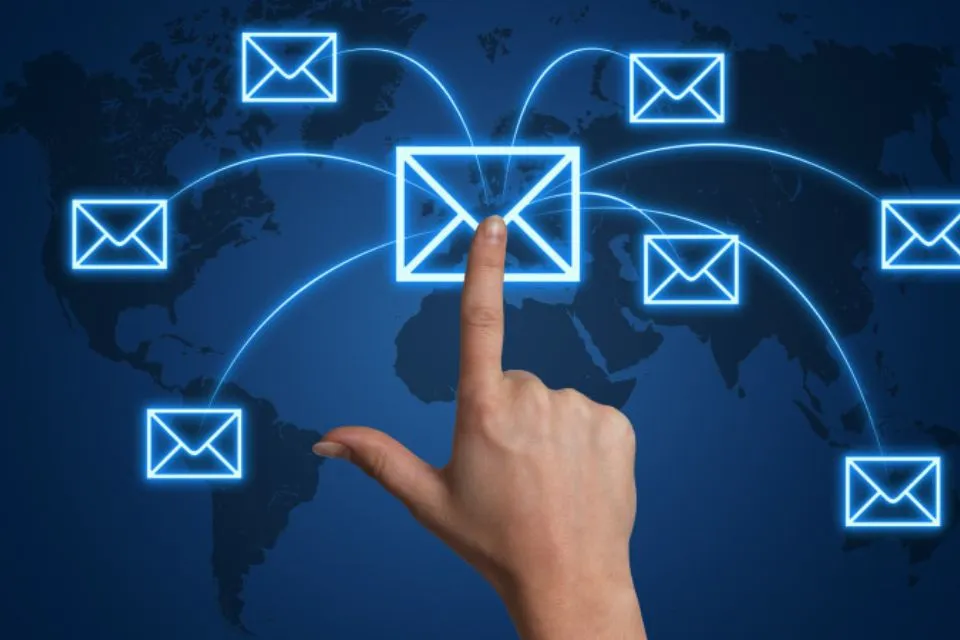Email Marketing Automation is still a potent device for companies to interact with their audience, encourage transformations, and produce a traffic audience in the whirlwind-paced world of digital marketing. Marketers want effective and operative ways to organize their email campaigns as the number of email messages increases and expands. Enter email marketing robotization, a game-changing path that revolutionizes the thruway emails that are transferred, delivered, and hounded. This complete accompaniment will claw into the demesne of email marketing robotization, its advantages, and how companies may exercise robotization tools and software to enhance their campaigns. Whether you are a seasoned marketer or a freshman to email marketing, this blog will equip you with precious perceptivity to harness the true eventuality of email marketing automation.
1. What is Email Marketing Automation?
Email marketing automation is the use of technology and destined workflows to shoot targeted and substantiated emails to subscribers at the right time grounded on special triggers reactions. It enables marketers to induce more daedal and targeted email marketing by substituting automated procedures for manual and repetitious missions.
The Benefits of Email Marketing Automation:
- Time and Resource Savings: Automation streamlines repetitive tasks, freeing up valuable time for marketers to focus on strategy and creative aspects of their campaigns.
- Personalization and Segmentation: Automation enables personalized content delivery to different segments of the audience, fostering stronger connections with recipients, a seamless task.
- Improved Engagement and Conversions: Personalized and timely emails result in higher engagement rates and increased conversion opportunities.
- Enhanced Customer Experience: Automated workflows ensure that customers receive relevant information and timely responses, leading to a positive customer experience.
3. Understanding Email Marketing Automation Software and Tools:
- Key Features and Functionality: Offers features such as email scheduling, automated workflows, segmentation, personalization, and reporting.
- Popular Email Marketing Automation Platforms: Constant Contact, Mailchimp, and AWeber are among the top email marketing automation platforms with robust features and user-friendly interfaces.
- Integration with Customer Relationship Management (CRM) Systems: Integration with CRM systems allows marketers to align email marketing efforts with customer data for more targeted campaigns.
4. Implementing Email Marketing Automation:
- Defining Goals and Objectives: Set clear objectives for your automation campaigns and align them with your overall marketing strategy.
- Building a High-Quality Email List: Focus on growing an engaged and opt-in email list to ensure your automated emails reach interested recipients.
- Segmenting Your Audience: Divide your subscriber base into relevant segments to deliver personalized content that resonates with each group.
- Crafting Effective Email Campaigns: Create compelling and relevant content that aligns with the goals of each automated workflow.
- Setting up Automated Workflows: Create automation workflows that are triggered by specific actions, such as email sign-ups or purchases, to deliver targeted emails.
- A/B Testing for Optimization: Continuously test and optimize your automated campaigns using A/B testing to identify the most effective elements.
5. Top Email Marketing Automation Workflows for Success:
- Welcome Series for New Subscribers: Nurture new subscribers with a series of welcoming emails that introduce your brand and offerings.
- Abandoned Cart Recovery: Send automated reminders to customers who abandon their carts, encouraging them to complete their purchases.
- Post-Purchase Follow-up: Send post-purchase emails with order confirmations, shipping updates, and personalized product recommendations.
- Customer Re-engagement: Re-engage inactive subscribers with re-engagement campaigns to bring them back into the sales funnel.
- Event Invitations and Reminders: Automate event invitations, RSVP confirmations, and reminders to boost event attendance.
- Lead Nurturing and Drip Campaigns: Nurture leads through automated drip campaigns that deliver valuable content and build trust over time.
6. Measuring Success with Email Marketing Automation:
- Key Metrics to Track: Monitor key metrics such as open rates, click-through rates, conversion rates, and revenue generated from automated campaigns.
- Analyzing Results and Making Improvements: Use analytics to evaluate the performance of your automation workflows and make data-driven improvements.
7. Email Marketing Automation Tips for Better Engagement:
- Timing and Frequency: Send emails at optimal times and avoid overwhelming subscribers with excessive email frequency.
- Personalization and Dynamic Content: Utilize personalized content and dynamic elements based on subscriber preferences and behavior.
- Behavior-based Triggers: Set up automation based on specific actions, such as website visits or email interactions, to deliver timely and relevant emails.
- Optimal CTAs for Conversion: Craft compelling CTAs that drive recipients to take action and achieve your campaign goals.
8. Addressing Challenges and Avoiding Pitfalls:
- Data Management and Segmentation: Ensure your data is clean, up-to-date, and appropriately segmented to avoid irrelevant emails.
- Avoiding Over-Automation: Strike a balance between automation and the human touch to maintain genuine and authentic communication.
- Deliverability and Spam Compliance: Follow best practices to ensure your emails land in the inbox and comply with anti-spam regulations.
9. The Future of Email Marketing Automation:
- Machine Learning and AI Integration: Automation platforms are integrating machine learning and AI to enhance personalization and predictive analytics.
- Cross-Channel Automation: To create coherent campaigns, email marketing automation will need to seamlessly integrate with other marketing channels in the future.
Also Read – Constant Contact’s Landing Page Service: Benefits & Step-By-Step Guide
Conclusion
For coincidental marketers, email marketing robotization is a pivotal tactic, not simply a passing style. Companies may improve client experiences, boost transformations, and boost engagement by planting robotization software and results successfully. By allowing marketers to deliver targeted, personalized, and timely emails at scale, email marketing robotization fosters close connections with subscribers and promotes business expansion. unlock the eventuality of email marketing robotization to take your email campaigns to new situations of success by employing its energy. Visit the official website of CelebZero and Constant Contact for further details about email marketing automation tools.

